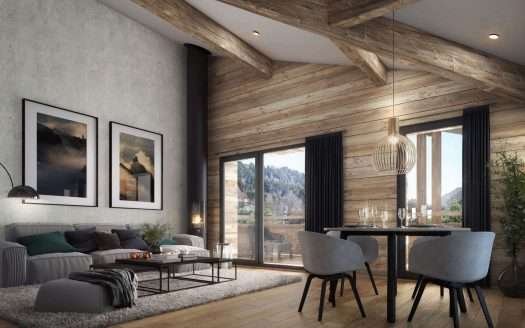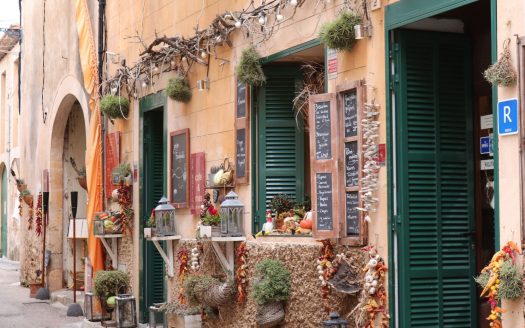How is the rental income from my fractional share taxed in France?
When you purchase a share of a French second home, you have a quota of 6 weeks to use per share (contact us for variations) whenever you want in the house. If you don’t use all of these nights, you can make some of them available for holiday-let rental to generate rental income. This way, you can cover part of your expenses and make your investment more profitable. The property manager handles all aspects of seasonal rental, from listing the ads to welcoming tenants and paying you your rental income. The rental income received is subject to income tax (IR, impôt sur le revenu) and social security contributions and/or social charges (reduced for non-residents).
Taxation of rental income from your share under income tax (IR)
How is it possible to have furnished rentals subject to IR (personal income taxation not corporate taxation) with an SCI?
Good question! By nature, an SCI (property investment company) carries out a civil and non-commercial activity, so the income from this SCI is subject to income tax (in other words, this income is taxed just like your salary, for example). However, when an SCI rents out a furnished property (LMNP), the income generated from these rentals is automatically subject to corporate tax (IS) instead of income tax.
This is why our main partner has opted for the SCI d’Attribution (SCIA): this structure allows the shareholders (the co-acquirers) to engage in furnished rentals through a mandate given to the property manager while remaining subject to income tax.
Thus, the clients are shareholders of an SCIA “société d’attribution d’immeuble en jouissance à temps partagé” (shared property enjoyment attribution company) and as such, they have the possibility to rent the allocated residence during the assigned period. This option is a specific feature of the law of January 6, 1986, which established the companies granting shared property enjoyment (Article 23).
In this case, it is the shareholder of the SCIA who is deemed to carry out this rental activity and therefore directly collects the rents. No flow passes through the SCIA, whose activity remains purely asset-related. The law and administrative doctrine specifies that this rental activity (carried out by the shareholder) falls under the tax regime for furnished rentals (professional or non-professional, depending on the case), which we have detailed below.

What is the difference between the professional furnished rental (LMP) and non-professional furnished rental (LMNP) statuses?
The LMNP (non-professional furnished lessor) and the LMP (professional furnished lessor) are tax statuses governing the rental of furnished accommodations. The tax rules (losses, depreciations, capital gains, etc.) differ depending on the status.
Good to Know: 💡 In France the LMNP status is the most common status. It allows you to operate your property while benefiting from a flexible and favourable regime.
Co-Ownership-Property
You are considered a non-professional furnished lessor (LMNP) if at least one of the following conditions is met:
The income derived from your rentals (i.e., inclusive of charges) must be less than €23,000 in terms of your tax household, which will, almost always, be the case for non-French residents with fractionalowenership. AND this income must be lower or equal to the other income generated by members of your tax household. In other words, you are considered a non-professional furnished lessor if your furnished rental activity is not the main activity of the members of your tax household. If both of the above conditions are exceeded, the LMNP automatically becomes LMP (Professional Furnished Lessor).
What are the steps to take with the tax authorities?
When you start a non-professional furnished rental activity (LMNP) or professional furnished rental activity (LMP), you must, following the start of your activity, submit a digital declaration of business activity through the online tax Revenue website
This step will allow you to:
obtain a SIRET number;
make known the existence of this activity;
indicate the chosen tax regime: the rental income generated by a share of a fractional ownership second home under the LMNP status is subject to industrial and commercial profits (BIC). To declare this rental income to the tax authorities, you have the choice between two tax regimes: the micro-BIC regime or the real-cost regime.
Option 1: Opt for the Micro-BIC regime to deduct up to 71% of expenses
Micro-BIC is the “simplest” and most accessible tax regime of the two. It applies when the amount of your rental income for the previous year does not exceed €72,600 for furnished holiday lets.
It allows taxpayers to benefit from a flat-rate deduction of 50% on rental income for the calculation of the taxable base for income tax. In other words, the taxable rents are equal to 50% of the rents received. In some cases (furnished holiday lets), this deduction is 71%. In order for the rented property to be classified as “furnished holiday let” you must submit a specific declaration to the town hall where it is located. In 90% of cases, fractional ownership properties in France are located in areas eligible for this “furnished holiday lets” qualification and the fractional ownership company takes care of the administrative procedures to obtain this status.
The micro-BIC regime in LMNP is considered a flat-rate regime: it applies to income from furnished holiday lets without the possibility of deducting the “real” expenses incurred by the lessor for the rental management of their property. Therefore, there is no deduction for mortgage interest, property tax, or furniture purchases.
Example 1: Mrs. A purchased a share of a fractional ownership second home classified as a furnished holiday let. She receives €4,000 in rental income per year (she does not receive any other rental income). She falls into the LMNP category. When filing her tax return, she declares her €4,000 in income and opts for the Micro-BIC regime. She then benefits from a 71% deduction on the income received.
By opting for the Micro-BIC regime, Mrs. A is thus taxed on €4,000 – 71% of €4,000 = €1,160. Therefore a non-French resident would pay 319€ in tax on a 4,000€ rental income (20% rental income tax + 7.5% contribution to social charges)
Good to Know: 💡 If you opt for the Micro-BIC regime, declare the income received on the complementary income tax return (Form 2042 C PRO in the "Revenus" section for non-professional furnished holiday lets). 💡 The Micro-BIC option is particularly suitable if you want to minimise administrative tasks.
What is the rental income tax rate for non-residents in France? Usually the tax rate on rental income for non-French residents is 20%. Also social charges are reduced to a solidarity levy of only 7.5% instead of the 17.20% that French residents need to pay.Since January 1, 2019, individuals affiliated with a mandatory social security system in a country within the EEA (European Economic Area, including the European Union, Iceland, Norway, Liechtenstein) or Switzerland are exempt from CSG (Contribution sociale généralisée) and CRDS (Contribution pour le remboursement de la dette sociale). Although the United Kingdom exited the European Union on January 1, 2021, British residents continue to benefit from this exemption from CSG and CRDS.
Option 2: Opt for the “real cost regime” to deduct “all real” expenses (not recommended)
Unlike the Micro-BIC regime, the “real cost” regime allows to deduct all actual costs related to the rental activity. These being mortgage interest (not the case anyway for most non-French residents buying share(s) in a French fractional ownership property) as well as other running costs (you only pay a fraction anyway), in our opinion it does not make any sense to choose option when you can just deduct 71% of the income tax to pay on the rental with the first option. Also with this second option, you need to declare a rental value for staying in your property.
Co-Ownership
Making Luxury Homes Affordable
Discover Fractional ownership for a second home, embrace the dream! At Co-Ownership-Property, our passion for people and real estate knows no bounds. We’ve been sourcing incredible properties in the best destinations for our global clientele, guiding them to their perfect second home havens.


